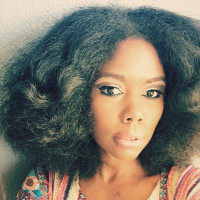
Gilles Deleuze has written that movement is a translation in space. In this talk I use this distinction as a framework for critical reflection on engaging how past agents marginalized in history have influenced the meaning of space and place. My focus will center on enslaved people who liberated themselves from bondage in the Great Dismal Swamp borderlands area of Virginia and North Carolina. Throughout this talk I will discuss how geospatial analysis has broadened the ways I approach enslaved movement in cartographies of struggle by pointing out the literal and figurative connections to space that enslaved people recognized in their journeys toward making freedom. The human costs associated with running away like distance, navigational literacy, and access to shelter and food are all weighed in this conversation. Ultimately the goal of this talk is to expand our understanding of how geospatial processes intervene with investigations into slavery and freedom and inform how enslaved movement translates spaces of the past.
Christy Hyman is a PhD student and digital humanist in the Department of History at the University of Nebraska Lincoln. Her work wrestles with the societal and ideological tensions in defining freedom within the United States south during the nineteenth century. Specifically, her investigations highlight African American efforts toward cultural and political assertion in the Great Dismal Swamp region. Her focus also includes environmental impacts resulting from the extractive industries that originated in the Great Dismal Swamp alongside the exploitation of enslaved labor. Building on the work of archaeologists, historians, and novelists, her work maps (or rather counter maps) the experiences of enslaved runaways and laborers who were exposed to the Great Dismal Swamp and the long duree of the attendant political, social and environmental costs of human/landscape resource exploitation.
A continuously updated schedule of talks is also available on the Digital Dialogues webpage.
Unable to attend the events in person? Archived podcasts can be found on the MITH website, and you can follow our Digital Dialogues Twitter account @digdialog as well as the Twitter hashtag #mithdd to keep up with live tweets from our sessions. Viewers can watch the live stream as well.
All talks free and open to the public. Attendees are welcome to bring their own lunches.
Contact: MITH (mith.umd.edu, mith@umd.edu, 301.405.8927).
